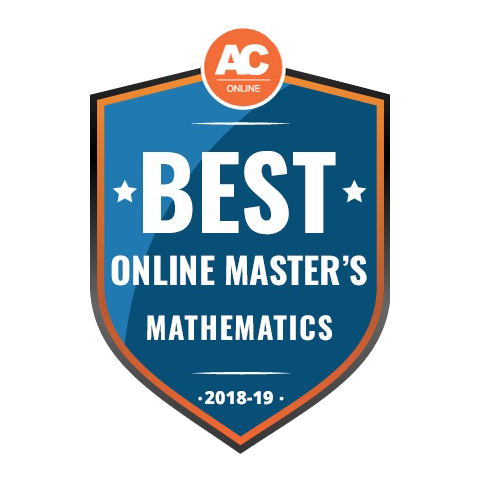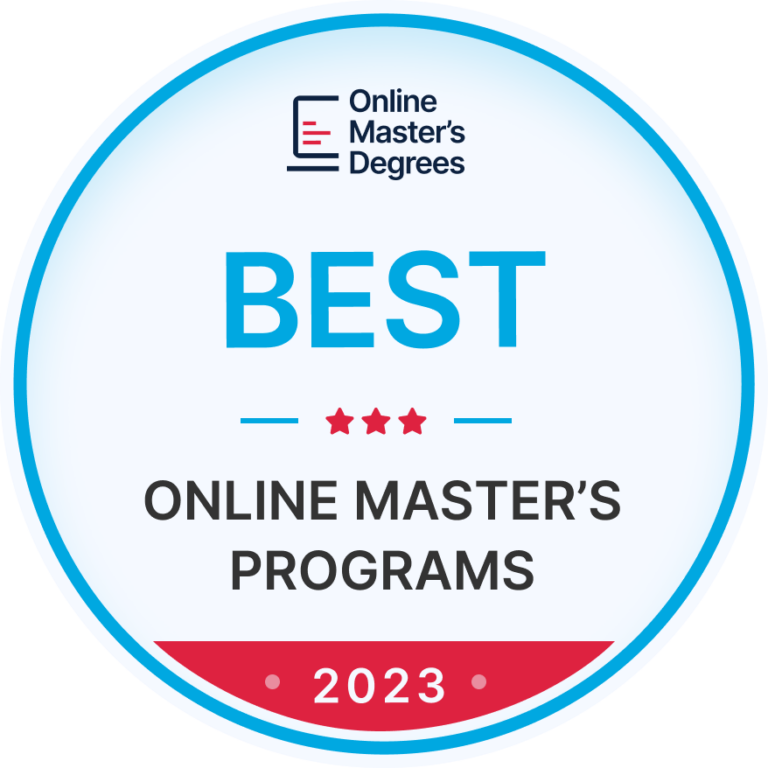
Mathematics
GRADUATE PROGRAM

Nicholls State University ranked a top school for online master’s in mathematics for 2023
Nicholls State University ranked a top school for online master’s in mathematics for 2023
Nicholls has been ranked as one of the nation’s best colleges for online master’s programs in mathematics. Just six percent of regionally accredited postsecondary institutions earned a ranking position.
Nicholls State University has been recognized as one of the best schools for online learning at the master’s level by OnlineMastersDegrees.org (OMD). Nicholls’s mathematics programs earned top honors for overall quality, affordability and commitment to student success.
See where Nicholls ranked below:
Best Online Master’s Degrees in Mathematics – https://www.onlinemastersdegrees.org/best-programs/mathematics/
“This year, we focused on the schools making it easier for students to compete in today’s increasingly difficult job market,” said Kyle Darland, co-founder of OMD. “Each ranked school offers a fully or partially online master’s program in mathematics at a time when earning a master’s has become a minimum barrier to entry for many.”
Darland is referencing a recent survey from CareerBuilder, which found that “thirty-three percent of employers are hiring workers with master’s degrees for positions that had been primarily held by those with four-year degrees.” These employers cited an evolution of the skills needed to perform the jobs as the cause of the shift, and an increase in work quality, productivity and employee retention as the result.
“Providing students with opportunities to get a master’s online is only part of our rankings,” said Darland. “Top-ranked schools also had competitive tuition rates and/or scholarships to help drive costs down. And with grocery, gas and other expenses on everyone’s mind right now, an affordable master’s is key.”
OnlineMastersDegrees.org analyzed more than 7,700 accredited universities by using data pulled from the schools themselves and from the Integrated Postsecondary Education Data System (IPEDS). After the data was compiled, OMD’s data science team then applied a proprietary algorithm to rank all qualifying schools for each of the different master’s degrees specialties. Primary data points include:
- Academic counseling services
- Career placement services
- Student/faculty ratio
- Tuition
- Percent of students receiving school-based aid
- Amount of school-based aid per student
To be eligible for ranking, a university must hold active regional accreditation and have at least one partially online master’s program in the ranking subject. Just 8 percent of U.S. postsecondary institutions earned a ranking position.
About OnlineMastersDegrees.org
OnlineMastersDegrees.org began in 2020 to support online learning at the master’s level. Our user-friendly, research-backed content helps students find scholarships, resources, financial aid, and connect with accredited colleges and universities across the country.
Admission Requirements
In addition to all general requirements for admission to the University and to Graduate Studies, applicants must:
- have a bachelor’s degree (with mathematics training which includes three-dimensional calculus and at least nine additional hours of mathematics at the junior level or above from accredited institutions and approved by the Department); AND
- submit three letters of recommendation; AND
- (i) have a minimum GPA of 2.50 on a 4.00 scale and attain a minimum GRE General Test score of 300; OR
(ii) have a minimum GPA of 2.75 on a 4.00 scale; OR
(iii) have a minimum GPA of 3.00 on a 4.00 scale on the last 60 hours.
An applicant who has a bachelor’s degree and who has a minimum GPA of 2.50 on a 4.00 scale, and who lacks exactly one of the admission requirements (1), (2), and (3)(i) listed above, may be admitted on conditional status with departmental approval. In the case of item (3)(i), the required GRE score must be received within the first semester of study. In the case of item (1), at most one academic prerequisite should be missing.
Graduate Coursework:
Required Courses (18 hours)
- MATH 509 Logic and Foundations of Mathematics (cornerstone course normally taken first semester)
- MATH 510 Number-theoretic and Discrete Structures
- MATH 523 Geometric and Algebraic Structures
- MATH 584 Technology and Communication in Mathematics (capstone course normally taken in final semester)
- MATH 578 Research in Mathematics Education
- MATH 580 Topics in the School Mathematics Curriculum
- MATH 595 Master’s Comprehensive Examination
Elective Courses (15 hours)
Elective course work is selected from approved courses in mathematics, education, and/or computer science.
At least nine hours of electives must be mathematics content electives.
- MATH 511 Calculus and Analytic Structures
- MATH 512 Probability and Statistics
- MATH 530 Introduction to Decision Theory
- MATH 540 Applied Matrix Analysis
- MATH 557 Applied Analysis I
- MATH 558 Applied Analysis II
- MATH 570 Mathematical Modeling and Problem Solving
- MATH 573 Topics in the History of Mathematics
- MATH 588 Topics in Mathematics
- MATH 589 Topics in Graduate Mathematics
- MATH 590 Topics in Graduate Mathematics
Computer Science
- CMPS 406* Software Engineering
- CMPS 410* Special Topics
- CMPS 418* Artificial Intelligence and Simulation
Education/Professional Development
- EDFR 503 Philosophy of American Education
- EDFR 513 Independent Study in Education
- EDTL 501 Design and Development of Multimedia Instructional Units
- EDTL 503 Educational Telecommunications, Networks, and the Internet
- EDTL 505 Technology Leadership in Schools
- EDTL 506 Professional Development of K-12 Technology Integration
- EDTL 509 Educational Technology Research, Evaluation, and Assessment
- EDTL 511 Advanced Telecommunications and Distance Learning
- MATH 577 Topics in Mathematics
*Undergraduate courses which may be taken for graduate credit.”
Frequently Asked Questions
Admission Requirements
In addition to all general requirements for admission to the University and to Graduate Studies, applicants must:
- have a bachelor’s degree (with mathematics training which includes three-dimensional calculus and at least nine additional hours of mathematics at the junior level or above from accredited institutions and approved by the Department); AND
- submit three letters of recommendation; AND
- (i) have a minimum GPA of 2.50 on a 4.00 scale and attain a minimum GRE General Test score of 300; OR
(ii) have a minimum GPA of 2.75 on a 4.00 scale; OR
(iii) have a minimum GPA of 3.00 on a 4.00 scale on the last 60 hours.
An applicant who has a bachelor’s degree and who has a minimum GPA of 2.50 on a 4.00 scale, and who lacks exactly one of the admission requirements (1), (2), and (3)(i) listed above, may be admitted on conditional status with departmental approval. In the case of item (3)(i), the required GRE score must be received within the first semester of study. In the case of item (1), at most one academic prerequisite should be missing.
Graduate Coursework:
Required Courses (18 hours)
- MATH 509 Logic and Foundations of Mathematics (cornerstone course normally taken first semester)
- MATH 510 Number-theoretic and Discrete Structures
- MATH 523 Geometric and Algebraic Structures
- MATH 584 Technology and Communication in Mathematics (capstone course normally taken in final semester)
- MATH 578 Research in Mathematics Education
- MATH 580 Topics in the School Mathematics Curriculum
- MATH 595 Master’s Comprehensive Examination
Elective Courses (15 hours)
Elective course work is selected from approved courses in mathematics, education, and/or computer science.
At least nine hours of electives must be mathematics content electives.
- MATH 511 Calculus and Analytic Structures
- MATH 512 Probability and Statistics
- MATH 530 Introduction to Decision Theory
- MATH 540 Applied Matrix Analysis
- MATH 557 Applied Analysis I
- MATH 558 Applied Analysis II
- MATH 570 Mathematical Modeling and Problem Solving
- MATH 573 Topics in the History of Mathematics
- MATH 588 Topics in Mathematics
- MATH 589 Topics in Graduate Mathematics
- MATH 590 Topics in Graduate Mathematics
Computer Science
- CMPS 406* Software Engineering
- CMPS 410* Special Topics
- CMPS 418* Artificial Intelligence and Simulation
Education/Professional Development
- EDFR 503 Philosophy of American Education
- EDFR 513 Independent Study in Education
- EDTL 501 Design and Development of Multimedia Instructional Units
- EDTL 503 Educational Telecommunications, Networks, and the Internet
- EDTL 505 Technology Leadership in Schools
- EDTL 506 Professional Development of K-12 Technology Integration
- EDTL 509 Educational Technology Research, Evaluation, and Assessment
- EDTL 511 Advanced Telecommunications and Distance Learning
- MATH 577 Topics in Mathematics
*Undergraduate courses which may be taken for graduate credit.
Can I transfer credits from another university?
Answer: A student may transfer from a regionally accredited college or university a maximum of six semester hours of degree program credit, with no grade lower than B, provided that such transfer credit shall be applicable to the degree program. Both resident and extension credits are thus acceptable. Transfer credits are subject to a five-year limitation. The student must formally petition his or her academic dean for acceptance of transfer graduate credit. Final authorization of transferred credit is made by the student’s academic dean. Credit earned at another institution while under academic or non academic suspension will not be accepted by Nicholls for transfer.
Answer: It is expected that all requirements for the Master’s degree (including transfer credits, if any) will be completed within six consecutive years. If requirements for a degree cannot be completed within the normal time period of six years, the student may petition for an extension of time. The petition must explain why the degree cannot be completed within the time schedule for completing the program. Final authorization will be considered only in unusual and justifiable circumstances. A course taken more than six years before completion of degree requirements may be used in a student?s degree program only if revalidated by the professor of record for the course, or one who currently teaches the course. In the event that neither is available, a certifying professor may be designated by the department head for that discipline. Revalidation must be certified in writing after an examination or other work required by the certifying professor. Only courses currently contained in the University Bulletin may be revalidated.
Answer:
In Education:
College instructor
Community/Technical college instructor
High school teacher
Curriculum and Training
Consulting
In Business:
Analyst
Test Development
Catalog Prospecting Manager
Finance
Actuary
Consulting
Federal positions:
NSA
“The entire program’s structure is particularly well designed, from the curriculum to the nature of the client/students. The courses and requirements are good. The courses take into account the career goals of the students. The rich content of the program will give students the needed skills to teach the intended student body…”
– Report from the Louisiana Board of Regents
Nicholls State University is offering a Master’s Degree designed for teachers of mathematics taught through distance learning!
This new Master of Science in mathematics is uniquely designed to serve teachers seeking professional development. The program consist of a mathematics/teacher education core consistent with post-secondary mathematics education training. The curriculum will strengthen secondary teachers’ content understanding by enriching their knowledge of logic, mathematics, and technology, as well as curriculum and instruction methods. The majority of the courses are offered online, allowing teachers the convenience of studying at home at their own pace. The structure of this program is unique in the State of Louisiana. The program is titled Master of Science in Community/Technical College Mathematics in order to also attract prospective math instructors for community or technical colleges.
We are excited to offer this unique program to teachers who are interested in obtaining their master’s degree. In addition to being a convenient way of obtaining a degree, this program is the only one in the state which allows teachers to obtain a Master of Science in mathematics while improving their instruction techniques. This program will not only strengthen a teacher’s knowledge of math, but will add successful , modern, teaching techniques to his/her foundation, including successful new methods using technology. The additional knowledge of higher mathematics, along with proven teaching techniques will enhance the teacher’s approach to instruction, as well as create a fresh, new outlook.
The teachers will not be the only ones to benefit from this extraordinary program. The students will also benefit from this new approach. Our students will recognize and appreciate the additional knowledge they will gain, as well as, the change that could take place in the classrooms. These changes include a more creative teaching approach with emphasis on new technology, which is the very thing that today’s students have embraced.
We are looking forward to a brighter future for our math teachers and our future generations of students.

Core Courses
The core courses consist of:
- Logic and Foundations of Mathematics (Cornerstone)
- Number-theoretic and Discrete Structures
- Geometric and Algebraic Structures
- Technology and Communication in Mathematics (Capstone)
- Educational Research
- Curriculum and Instruction
Assistantships are available
Graduate assistantships valued at $5,500 each per semester are available for qualified students. Applications will be evaluated as they are received.
For more information fill out our online application.

For more information about the Masters of Science in Mathematics program please contact:
Dr. Matthew Gamel
Email: matthew.gamel@nicholls.edu
Phone: 985-448-4382
CONTACT INFORMATION
108 Peltier Hall
P.O. Box 2026
Thibodaux, Louisiana 70310
For more information about the program please contact:
Dr. Brian Heck, Department Head
Email: brian.heck@nicholls.edu
Phone: 985.448.4383

